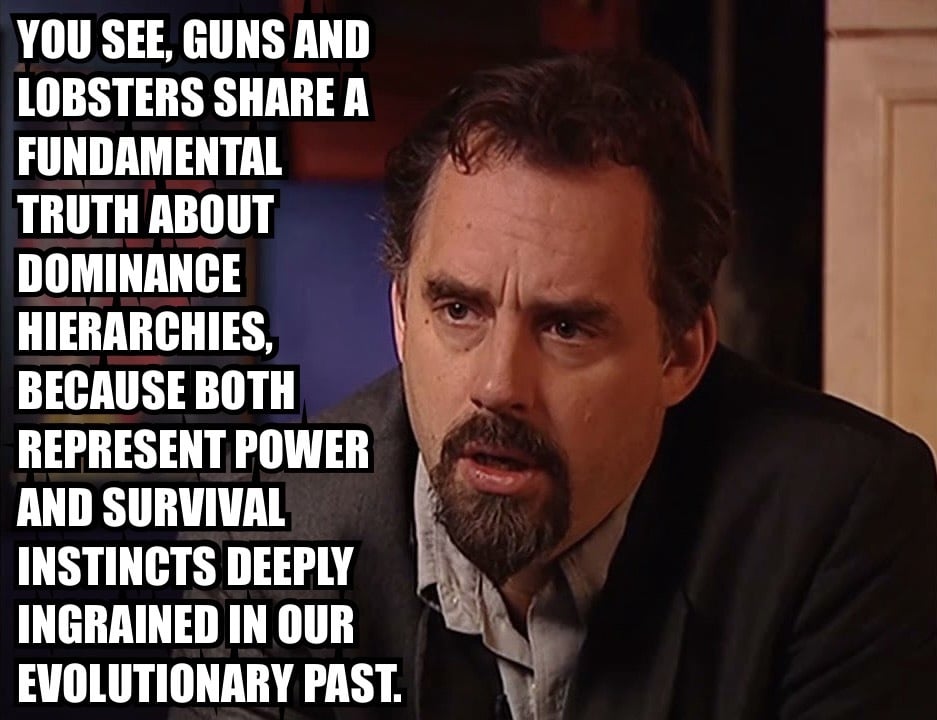Lobsters don’t wear hats. And there’s a profound reason for this, one that resonates deeply within the evolutionary hierarchies that have shaped not just lobsters, but, more importantly, you. Now, some might scoff at the notion, “Lobsters and hats? What possible connection could there be?” But to dismiss this out of hand is to miss a critical truth embedded in the very structures of our existence—both at the level of the lobster and the human psyche.
Let’s start with the lobster. A lobster, as we know, is an ancient creature—200 million years of evolutionary survival, of order and dominance in the chaotic seas. These crustaceans have lived through epochs, yet in all this time, they’ve never once chosen to don a hat. Why is that? Is it merely because they lack opposable thumbs or a sense of style? I would argue no. The lobster, in its infinite biological wisdom, understands something we do not: the wearing of hats is fundamentally anti-hierarchical. It disrupts the natural order.
Lobsters establish dominance through posture, through their sheer presence in the social hierarchy of the ocean floor. A lobster doesn’t require adornment to signal its place in the world; its claws, its form, its very existence is enough. Now, think about a hat. A hat is an artifice. It’s something we place atop our heads to signal—what, exactly? Status? A desire for attention? An attempt to impose an external structure on an internal hierarchy? The lobster doesn’t need such a signal. It knows where it stands because it has clawed its way to the top, literally and figuratively. To wear a hat would be to mask that truth, to cover up the raw, unmediated display of power and dominance that the lobster exudes.
Now, you might be wondering how this applies to you, the modern human. Well, I too once faced the decision: should I wear a hat? At first glance, it seemed innocuous, even practical. But the more I thought about it, the more I realized that to wear a hat was to engage in the same superficial posturing that lobsters so wisely avoid. It’s not just about fashion. It's about philosophy. When we put on a hat, we’re signaling to the world that we need something external to define who we are. We’re masking our true position in the dominance hierarchy with an accessory. A hat, in this sense, is a lie.
Consider, for a moment, the ancient Greeks. Did Socrates wear a hat? Plato? No. They didn’t need one. Their intellect, their understanding of order, was enough. They weren’t trying to signal anything beyond their deep understanding of the human condition. Now contrast this with the Romans—yes, they wore helmets, but look at what happened to them! Their empire fell, not because of poor military strategy, but because they relied too much on symbols of power, rather than the power itself. The hat is the helmet of the everyday individual, a symbol of superficial control in a chaotic world. But true strength, as the lobster understands, comes from within.
Now, some might argue, “But what about protection from the elements? Isn’t a hat just practical?” And here is where the trap lies. Yes, one might say that a hat shields you from the sun, the rain, and other external forces. But this is precisely the problem. The lobster doesn’t need protection from the elements. It adapts. It evolves. It survives. By relying on a hat, you are, in essence, signaling to the world that you are unable to adapt, that you are weak, fragile, in need of shielding. You’re saying, “I can’t handle the harshness of reality on my own.” The lobster, however, understands that reality is not something to be avoided, but something to be confronted head-on, with claws outstretched.
And so, in deciding not to wear a hat, I am aligning myself with the ancient wisdom of the lobster. I am refusing to bow to the superficial demands of society that say, “You need this accessory to be complete.” No, I am complete as I am—hatless, and in full possession of my place in the dominance hierarchy. The lobster knows this. And deep down, so do you.
In conclusion, lobsters don’t wear hats because they don’t need to. They understand their place in the world and act accordingly. Hats are a distraction, a false signal of strength and status. And if we, as human beings, truly want to understand our place in the hierarchy, we too must reject the hat. We must embrace the clarity of our being, unadorned, like the lobster, in full recognition of our strength.



Before the weight of benzos had pulled me into the abyss, when each day blurred into an unbearable haze, I found myself entangled in a situation that was not simply about the drug itself, but about the fundamental nature of attraction versus love—an odd parallel that mirrors our misunderstanding of honesty in the world. You see, attraction is primal, it’s immediate. It’s a bit like the lobster—those ancient creatures whose lives revolve around dominance hierarchies and instinctual drives. Lobsters are driven by attraction to dominance; they fight to maintain their status. It’s visceral, it’s deeply biological, it’s embedded in our nervous system, and that’s attraction—it’s automatic, reactive, and based on evolutionary imperatives.
Now, love, on the other hand, love is something far more sophisticated, something that requires attention, patience, the willingness to sacrifice the immediate for the sake of the future. Love transcends attraction in the same way honesty transcends deception. When you are honest, really honest, it’s not just about saying what’s true in the moment. It’s about building a structure that stands the test of time, much like love. Love, when true, is intertwined with a form of honesty, a painful honesty at times, one that forces you to confront the parts of yourself you don’t want to see.
And it was during those benzo-fueled nights that I realized how far I’d drifted from that honesty. I wasn’t honest with myself, nor with those I cared about. I had fallen into a relationship with attraction—attraction to comfort, attraction to numbness—rather than the hard but necessary task of confronting the chaos of existence. I was playing the game like the lobster plays the dominance hierarchy—scratching, clawing to stay above the abyss, but it was a losing battle because, without love, without honesty, I had nothing solid beneath me.
The benzos, they offered an easy way out, much like false promises do. They pull you in like attraction does, feeding that part of you that just wants to avoid the pain. But love, true love, insists that you face the pain, that you endure it for something greater. It’s like honesty in that sense, you can’t lie your way to love. You can’t medicate your way to an honest life.
And so, as I drifted further and further away from both love and honesty, I sank deeper into the fog. My attraction to benzos was just another manifestation of my own dishonesty. I wasn’t admitting to myself the price I was paying, nor the depth of the suffering I was causing—not just to myself, but to everyone who loved me. It was only after being forced into a coma, a descent into oblivion more profound than any I could have orchestrated myself, that I was given the space to understand these distinctions again.
It’s remarkable, really, how the lobster, for all its simplicity, can teach us these profound lessons. It never pretends to be something it’s not. It fights for dominance, not out of love, but out of necessity. And when it loses, it accepts its place, tail curled beneath its body, as it retreats into a more honest existence. We humans, with all our pretensions, we are often so much worse at this. We lie to ourselves, fall for attraction when we should be striving for love, fall for comfort when we should be confronting the truth.
And so it was—before the coma—that I was lost in that in-between place, where I neither loved nor was honest, driven by the mindless attraction to the temporary, to the escape that benzos offered. But lobsters, they don’t have a choice. We do. We can choose love, and we can choose honesty, but only if we are brave enough to face the chaos and climb, once more, out of the abyss to clean our rooms.